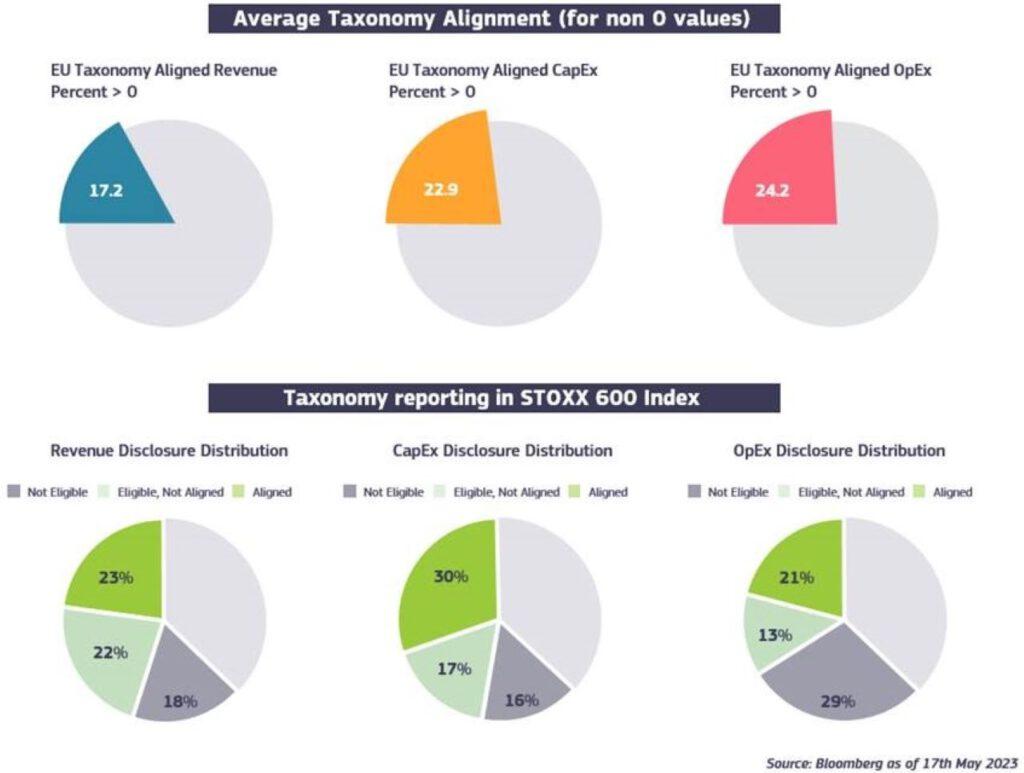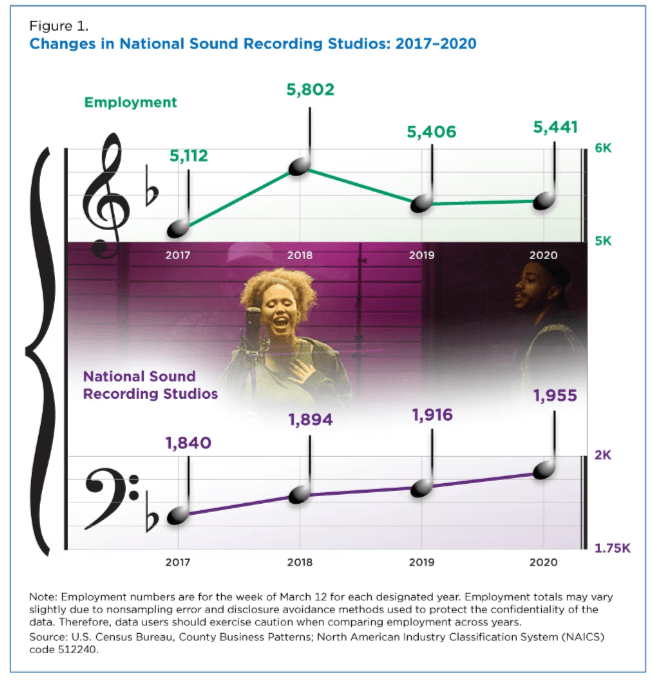
EU Commission publishes European Media Data Market study 2024-2026
The European Data Market (EDM) Monitoring Tool has been tracking the progression of the European Data Economy since 2013. This tool provides valuable insights and quantitative data on its industry and regional dissemination, significantly influencing European policy strategies in this domain.

EU background on the Sustainable Finance package:
The European Union will need additional investments of around €700 billion every year to meet the objectives of the European Green Deal. The bulk of these investments will have to come from private funding. How to address this challenge?

Grammy Awards: U.S. Census Bureau publishes industry data
February 02, 2023 Written by: Adam GrundyThe Recording Industry Association of America (RIAA) is celebrating the 65th annual Grammy Awards February 5, and the U.S. Census Bureau is tuning in by doing what it does best: provide demographic and business statistics, this time related to categories the awards recognize. For example, how many U.S. music directors and composers were there in 2021? There were 45,636, according to the 2021 American Community Survey (ACS) 1-year
European Media Freedom Act: EU Parliament assesses draft
Brussels, 31 January 2023 On Tuesday, the Committee on Civil Liberties, joined by experts and stakeholders in a public hearing, discussed the proposed rules aiming to strengthen media pluralism and freedom in the EU. During the public hearing that took place in association with the Committees on Culture and on the Internal Market, MEPs exchanged views with experts and stakeholders. Panel 1 Marie FRENAY, Member of Cabinet of Commission Vice-President
Cyber defence: Details of the EU’s new policy
On 10 November, the European Commission and the High Representative put forward a Joint Communication on an EU Cyber Defence policy to address the deteriorating security environment following Russia’s aggression against Ukraine and to boost the EU’s capacity to protect its citizens and infrastructure. The cyber domain is increasingly contested and the number of cyber-attacks against the EU and its Member States continues to grow. The Russian attack on the KA-SAT
Europe’s Digital Services Act enters into force
Brussels, 16 November 2022 Today a landmark new set of EU rules for a safer and more accountable online environment enters into force with the Digital Services Act (DSA). The DSA applies to all digital services that connect consumers to goods, services, or content. It creates comprehensive new obligations for online platforms to reduce harms and counter risks online, introduces strong protections for users’ rights online, and places digital platforms under a
EU Commission Q&A: The EU copyright rules
Brussels, 4 June 2021 What is the new Copyright Directive about? Digital technologies have transformed the way creative content is produced, distributed and accessed. The Copyright Directive is a new piece of EU legislation that brings the copyright rules up to date with those changes and with the online world. It aims to create a comprehensive framework, which will benefit a wide range of players acting in the digital environment: internet users,
The European Digital Rights and Principles – Background
Link The Commission has proposed a declaration on European digital rights and principles to promote a digital transition shaped by European values. The Commission wants to ensure people are empowered to fully enjoy the opportunities that the digital decade brings. So, it has proposed a set of European digital rights and principles that reflect EU values and promote a sustainable, human-centric vision for the digital transformation. The European digital rights
The EU Directive on television and radio programmes – EU Commission Q&A
By CM – June 04, 2021 Brussels, 4 June 2021 What were the challenges for online transmission and retransmission of television and radio programmes that the new Directive on television and radio programmes is addressing? Broadcasters are increasingly offering their broadcasts online (for instance through their simulcasting or catch-up services). However, such online programming often remained unavailable in other Member States, even if there was interest abroad to access it. The ‘clearance of rights’
